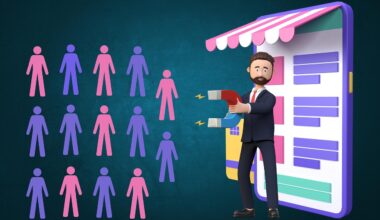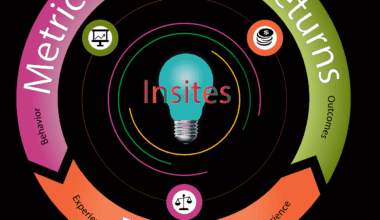How Paying Off Student Loans Can Increase Your Savings Potential
Managing student loans can be challenging, particularly for recent graduates. They often face high monthly payments that constrict financial flexibility and hinder savings potential. Paying off these loans promptly allows you to redirect those funds towards savings, investments, or emergency funds. Eliminating debt results in less stress and better financial health, enabling you to build a stronger financial future. Every dollar spent on student loans is a dollar not saved for future goals, such as purchasing a home or retirement. To fully realize savings potential, consider starting with high-interest loans. By prioritizing which loans to pay off first, you can minimize interest costs, effectively increasing your available savings. Establishing a clear plan pays dividends. For example, use the snowball or avalanche method depending on your personality. Cultivating a mindset that prioritizes savings enhances your ability to overcome future challenges directly linked to financial stress. When student debt is managed effectively, not only do you enhance your savings potential, but you also encourage better financial habits that will last a lifetime. Always remain aware of the impact of your student loans on your overall financial health; eliminating them can open doors.
Benefits of Paying Off Student Loans
One significant benefit of reducing student loans is the ability to save for emergencies. Building an emergency fund is crucial for unexpected financial challenges, such as job loss or urgent repairs. Having savings set aside means you are less likely to rely on credit cards, reducing the debt trap. When you prioritize paying off loans, it’s easier to allocate a portion of your income toward an emergency fund while reducing total financial liabilities. Furthermore, prioritizing student loan repayment encourages the development of disciplined spending habits. By tracking your progress as you pay down loans, you learn effective budgeting techniques that can simplify financial planning. Additionally, once student loans are paid off, you can freely allocate that funded portion to investment opportunities or long-term savings accounts. Investments can yield higher returns over time, significantly increasing your net worth. As a result, it reinforces the importance of beginning your path to financial independence. It’s a step toward creating a future where you are less dependent on loans and more capable of enjoying life without financial anxiety. Use these moments as motivation for better financial behavior and achieving bigger dreams.
Moreover, paying off student loans positively impacts your credit score and overall financial health. A stronger credit score opens more possibilities for favorable lending options when applying for mortgages or car loans. With fewer liabilities on your credit report, lenders view you as less risky, leading to lower interest rates. This not only helps save money on future loans but also improves your credibility as a borrower. Additionally, once student loans are eliminated, your debt-to-income ratio improves. This is crucial for maintaining financial stability and securing better loan terms. Maximize your financial health by monitoring your credit regularly; maintaining healthy accounts helps ensure accurate reporting. Oftentimes, people underestimate the importance of a good credit score and its long-range implications. Friendly credit counseling services can provide guidance on maintaining good credit after loans are paid. Hence, the journey of debt repayment is not only about eliminating what you owe; it’s about ensuring your future financial well-being. These foundational concepts help harness savings potential and guarantee stability in times of economic fluctuations. Remember, the more informed decisions you make today will lead to a more secure tomorrow.
Strategies for Paying Off Student Loans
Finding effective strategies for paying off student loans can significantly enhance your savings potential. Start by creating a clear, structured repayment plan that suits your financial situation. Choose to consolidate your loans, potentially securing a lower interest rate and simplified monthly payments. Additionally, consider options like income-driven repayment plans that allow flexibility based on earnings. These strategies ensure you’re not overextending yourself while still making significant progress. Extra payments can be made toward principal amounts whenever possible to decrease overall interest costs. Developing a budget is crucial in observing where savings can be allocated toward loan repayment. Look for unnecessary expenses that can be reduced or eliminated, subsequently using those funds for your loans. A side hustle can also provide extra income specifically meant for loan repayment, thereby fostering a debt-free lifestyle quicker. Reward yourself for reaching milestones, ensuring motivation remains high throughout the repayment journey. Seeking assistance through financial advisors can provide personalized strategies that maximize savings while reducing the debt burden. Paying attention to available resources increases your chances for improved financial stability and a successful future.
Applying for student loan forgiveness programs also represents a compelling approach to managing debt effectively. Several federal and state programs provide debt relief through public service work and other commitments. Understanding eligibility requirements can guide graduates toward options that significantly lessen their financial burden. Moreover, some employers now offer student loan repayment assistance programs, making it easier to pay off loans while working. Leveraging these benefits helps graduates save money in the long run through reduced payments. An important consideration is the timing of consolidation versus waiting for forgiveness opportunities. Evaluating your long-term plans informs decisions about loan management and timelines for benefit applications. Most importantly, educating yourself about financial management principles promotes greater awareness of your financial situation. Taking the time to research viable options allows borrowers to make well-informed decisions. Gradually paying off student loans leads to refined saving techniques and a sincere understanding of long-term financial independence. These practices build a foundation for future generations, instilling wise money lessons and encouraging responsible debt management. Ultimately, ensuring student loans don’t overshadow your financial future is critical.
Conclusion
In conclusion, paying off student loans creates numerous opportunities for increasing your savings potential. After loans are eliminated, you can allocate your budget to essential savings needs, such as retirement accounts or emergency funds. This shift fosters financial freedom, empowering individuals to invest in self-growth and future experiences. Additionally, achieving debt freedom results in lower stress levels, leading to improved mental health and overall well-being. Reaching these financial milestones equips you with essential skills for money management, fostering a better understanding of investing and resource allocation. Moreover, the motivation derived from paying off loans can serve as a catalyst for achieving bigger financial goals. Focus on creating a vision for your future that extends beyond immediate gratification. Rather than feeling encumbered by student debt, embrace the financial responsibility that comes with personal growth. By consistently evaluating your financial wellness, you pave the way for a stable and secure future. Always remember that every step taken toward paying off debt brings you closer to financial independence and freedom. Maintaining steadfast discipline and employing wise financial strategies can achieve long-lasting benefits and financial success.
Ultimately, managing student loans can be a challenging journey. However, by implementing effective debt reduction strategies, you can significantly increase your savings potential and establish a brighter financial future. Paying your student loans off not only relieves pressure from monthly payments but also opens doors for better financial habits that will benefit your tomorrow. Take the time to assess your financial situation, budget wisely, and utilize available resources to navigate your debt effectively. Building a solid foundation through informed financial practices equips you with the skills necessary for future success. Embrace the journey of becoming debt-free; it is a pivotal step towards achieving personal growth and independence. Breaking free from student loans allows you to focus on your long-term aspirations and savings goals without being weighed down by past financial decisions. Keep informed about various repayment options, potential forgiveness, and employer assistance to maximize your benefits. As you progress towards eliminating your loans, remember that this is about more than just numbers; it’s about your life and future. In this quest for financial freedom, the actions taken today will resonate long into the future, creating the groundwork for an empowered life free from financial anxiety.
Furthermore, financial literacy plays a vital role in ensuring successful debt repayment and increasing savings potential. By understanding basic financial principles, you can make sound decisions regarding spending, saving, and investing. Knowledge empowers you to devise strategies that work best for your situation, ultimately leading to greater financial stability. To enhance your savings, educate yourself about personal finance topics through workshops, books, or online resources. Expanding your financial knowledge fosters responsible financial behavior, which is crucial to your journey. As you embark on your debt-free quest, the benefits accumulate over time, from improved credit scores to better job opportunities. Building financial literacy enables you to manage your budgeting, allowing seamless transitions into debt repayment and savings. This journey can inspire family and friends, creating a ripple effect of financial awareness. Instilling the habit of financial education early on ensures that younger generations learn sustainable money-management practices, setting them on paths to success. Hence, the more equipped you are, the better positioned you become to tackle loans and elevate your savings potential for years to come.





